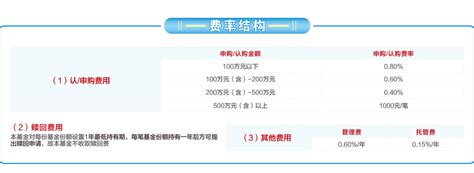Title: Understanding the Abbreviation for Conservative Mutual Funds
Introduction:
Conservative mutual funds are a type of investment option that focus on preserving capital and generating stable returns over the long term. When discussing such funds in the context of international or Englishbased investment platforms, it can be helpful to understand the common abbreviation used for these funds. In this article, we will explain the commonly used abbreviation for conservative mutual funds and provide additional insights into their nature and benefits.
Abbreviation for Conservative Mutual Funds:
The most commonly used abbreviation for conservative mutual funds in English is "CMTF," which stands for Conservative Mutual Fund. This abbreviation is widely recognized and understood across financial markets and investment platforms.
Understanding Conservative Mutual Funds:
Conservative mutual funds are designed for investors seeking lower risks compared to other types of mutual funds. These funds typically invest in fixedincome securities such as government bonds, corporate bonds, and money market instruments. The primary goal of conservative mutual funds is to preserve capital and generate steady income.
Many investors choose conservative mutual funds for their stability and reliability. These funds are suitable for individuals with a lowrisk tolerance or those who prioritize capital preservation over potential high returns. Conservative mutual funds are particularly attractive for investors nearing retirement or those with shortterm financial goals.
Benefits of Conservative Mutual Funds:
1. Capital Preservation: Conservative mutual funds prioritize the preservation of capital, making them a suitable option for riskaverse investors. They aim to minimize the impact of market fluctuations and potential financial uncertainties.
2. Steady Income Generation: Conservative mutual funds aim to generate a stable income stream for investors through investments in fixedincome securities. This income can be especially beneficial in retirement or during periods of economic volatility.
3. Lower Volatility: Compared to other types of mutual funds, conservative funds tend to experience lower volatility due to their investment strategy. This reduced volatility can help investors maintain a more stable and predictable investment portfolio.
4. Diversification: Conservative mutual funds generally allocate their investments across different fixedincome assets, offering investors diversification benefits. Diversification helps reduce portfolio risk by spreading investments across various sectors or issuers.
Considerations for Investors:
While conservative mutual funds offer several advantages, it is essential for investors to consider their individual investment goals, risk tolerance, and time horizon before investing. Some additional factors to consider include:
1. Returns: Conservative mutual funds typically offer lower returns compared to other types of mutual funds that focus on higherrisk assets such as equities. Investors should assess their return expectations and ensure they align with the objectives of conservative funds.

2. Fees: Like any other investment product, conservative mutual funds have associated fees, including management fees, administration fees, and potential sales charges. Investors should review and compare the fees associated with different funds, ensuring they align with their investment objectives.
3. Fund Manager Expertise: Evaluating the track record and expertise of the fund manager is crucial when considering any investment option. Investors should research the fund manager's experience, investment strategy, and performance history.
Conclusion:
Conservative mutual funds, often referred to as "CMTFs," are ideal for investors seeking capital preservation and steady income generation. These funds primarily invest in fixedincome securities, prioritize stability, and are suitable for riskaverse individuals. Investors should carefully evaluate their investment goals, risk tolerance, and fees associated with the fund before making any investment decisions.